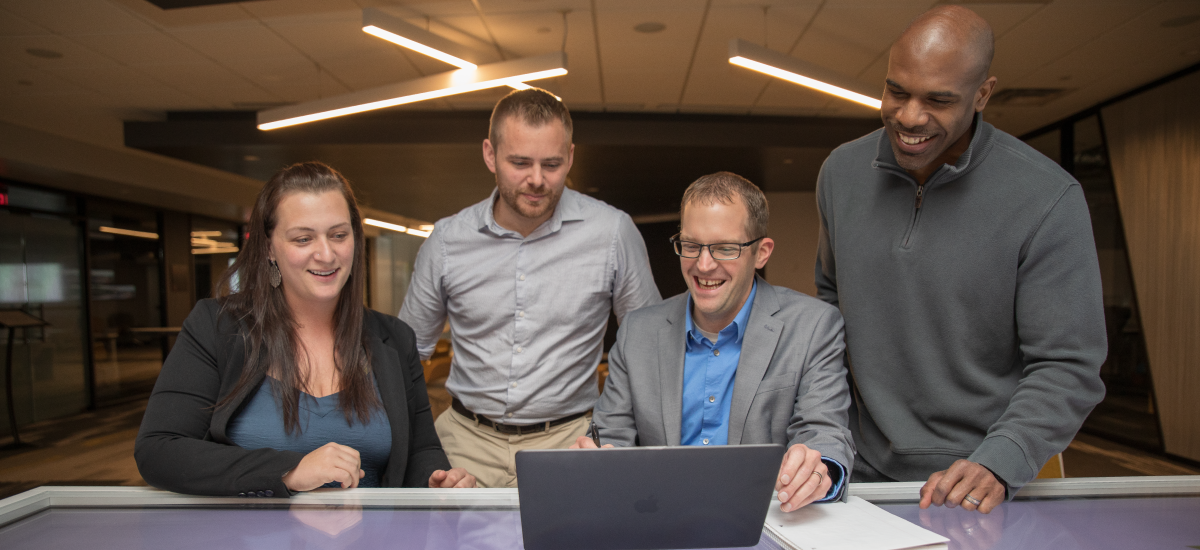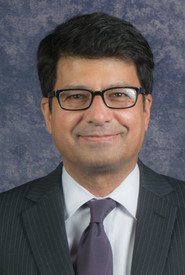Taking Care of Your Career: Professional Education in Uncertain Times

In uncertain times such as these, furthering one’s professional growth may seem like a bridge too far. Anxiety about more immediate concerns can consume our thoughts. The financial health and prospects of our employers, the challenges of finding a new job in this environment, the uncertainty about what our workplaces and work lives will be like on the other side of the pandemic; these are all continuing sources of concern.
Yet there are areas of assurance too, especially for technologists. We know that technological developments will continue to drive the economy and will be a linchpin in its recovery. We know that innovation will be in demand in the new normal, even if we cannot predict what form that will take. We know, too, that companies are and will be looking for future leaders who are adept at relating technology development and strategy to business priorities.
In such an environment—where uncertainty is pervasive and yet some positive trends are accelerating—what can those working in technology do to better prepare for their professional futures?
Educational offerings that integrate technology, business, and leadership are one answer. They can provide workers with new tools and perspectives that will not only enable them to excel in their current roles, but that will also open doors to career growth opportunities.
We know that technological developments will continue to drive the economy and will be a linchpin in its recovery. We know that innovation will be in demand in the new normal.
Several such programs are available in Minnesota, including master’s degrees in the management of technology and engineering management, which cater to current and future leaders across industry and technology sectors, and more specialized programs such as in security technologies, medical devices, healthcare, and food and agriculture. For example, the Technological Leadership Institute at the University of Minnesota (TLI) offers master’s degrees in the Management of Technology, in Security Technologies, and in Medical Device Innovation.
What do the curricula for such programs look like? Of course, they vary depending on the program, but here are a few examples to give you a sense of what can be covered:
-
Technology management: courses here would cover emerging technologies, technology and product roadmaps, digital transformation, innovation management, new product and service design, intellectual property management, and technology foresight and forecasting.
-
Business fundamentals: examples of courses here would be accounting, finance, valuation and entrepreneurship. operations and supply chain, and strategic marketing; such courses are taught in business schools, but for technology professionals, they need to be tailored accordingly.
-
Leadership: this is a crucial area for professional education and is relevant at all levels of responsibility, from individual contributors to team leads to managers and executives. Policy and regulation, ethics and sustainability, and conflict management are also important here.
-
In today’s world, a global perspective is essential. Some programs include an international trip as part of the curriculum. From personal experience, these are invariably eye-opening.
-
Finally, some programs, including all at TLI, include “capstone” projects that help students apply what they’ve learned to a problem or opportunity at their workplace (or to a personal interest), and often result in immediate return-on-investment for students as well as their employers.
Based on my experience as the director of the MS in the Management of Technology program at the University of Minnesota—the longest-running such program in the region and the second-longest in the country—the impact of such an education and the associated credential is clearly evident, even in the midst of the pandemic. For example, the blend of technology and business represented by the MS-MOT degree was a key factor in an alumna being recruited for a leadership role this summer. And, just a couple of weeks ago, an alumnus who changed jobs sent us a note to let us know that his MOT degree was very helpful during his interview and “especially in the salary negotiation.”
If you are an early or mid-career professional working in a technology organization and/or are interested in technology leadership and innovation, consider the professional education opportunities that are available to you. Don’t let your career growth be a casualty of the pandemic!
The best way to learn if a program is right for you and your career goals is to attend an information session, where you can hear from the director of graduate studies, learn more about the curriculum and the ROI for students.
About the Author

Tariq Samad, PhD
- Honeywell/W.R. Sweatt Chair in Technology Management
- Senior Fellow
- Director of Graduate Studies
- MOT and MDI Faculty
Honeywell/W.R. Sweatt Chair in Technology Management
Dr. Tariq Samad brings more than 30 years of professional experience, leadership and expertise to TLI. His corporate career was spent at Honeywell, where he focused on technology strategy and management, encompassing the end-to-end concept-to-commercialization pathway. He also has substantial experience in research and innovation globally, and works with TLI to pursue research interests in areas such as clean energy, advanced manufacturing and smart cities. Dr. Samad serves as the director of graduate studies for the Master of Science in Management of Technology degree program at TLI.